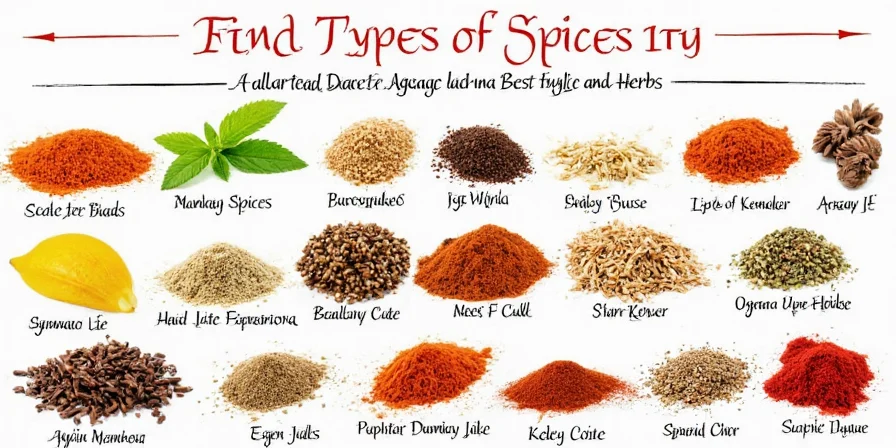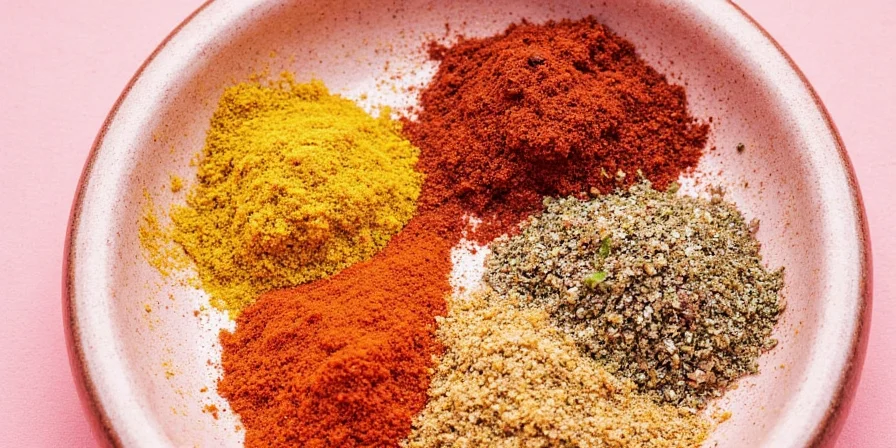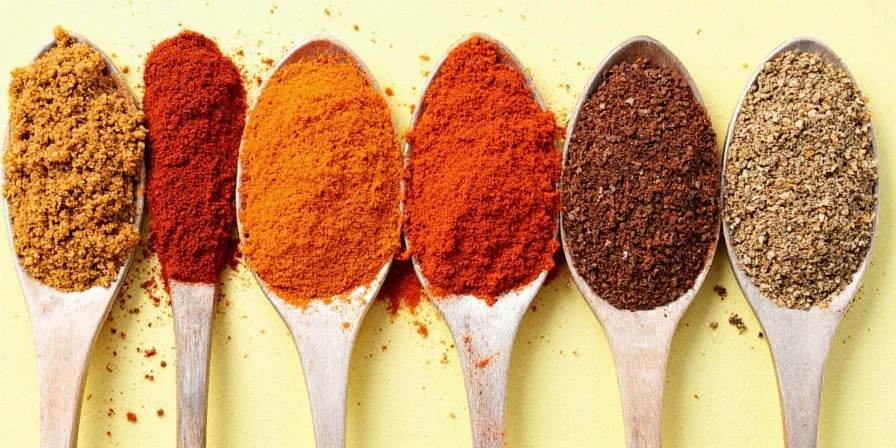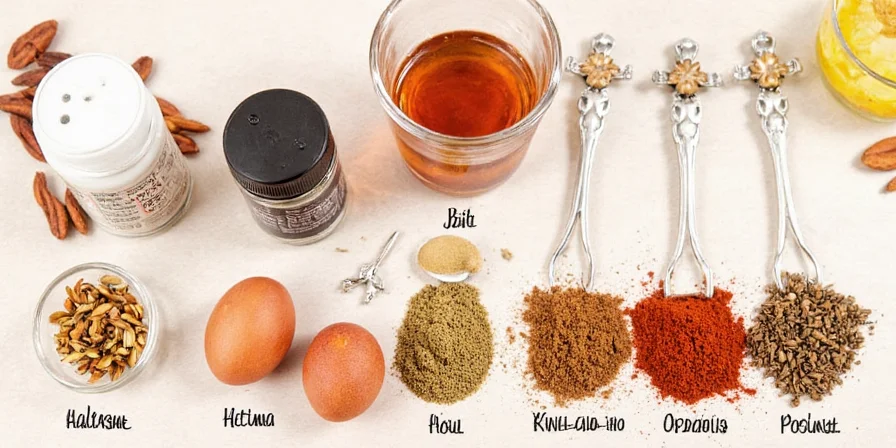Table of Contents
- Your Essential Spices Starter Kit: What You Really Need
- Top 5 Must-Have Spices for Every Home Kitchen
- Simple Ways to Use Spices Like a Pro (No Science Degree Needed)
- Spice Mistakes Everyone Makes (And How to Fix Them)
- Perfect Spice Pairings for Common Dishes
- How to Store Spices So They Last Longer
- Quick Answers to Your Spice Questions
Your Essential Spices Starter Kit: What You Really Need
For home cooks looking to improve their everyday cooking, just five essential spices will transform your meals: cumin, paprika, turmeric, coriander, and black pepper. These foundational spices cover most global cuisines and work together to enhance flavors without overwhelming your dishes. Skip expensive spice collections—start with these affordable, versatile spices that actually get used regularly in home cooking.

Unlike overwhelming spice guides that suggest dozens of jars, this approach focuses on what home cooks actually need. These five spices work together to create depth in soups, stews, roasted vegetables, meats, and even baked goods. You'll save money, reduce clutter, and finally understand how to use spices properly in everyday cooking.
Top 5 Must-Have Spices for Every Home Kitchen
Start with these five versatile spices that cover 80% of cooking needs. They're affordable, widely available, and work together to create restaurant-quality flavors at home:
- Cumin – Adds earthy warmth to chili, tacos, and roasted vegetables. Use 1/2 tsp per pound of meat.
- Paprika – Brings color and mild sweetness to soups, stews, and deviled eggs. Choose smoked paprika for barbecue dishes.
- Turmeric – Gives golden color to rice and curries. Pair with black pepper and oil for better absorption.
- Coriander – Brightens bean dishes, tomato sauces, and fish. Works especially well with lemon.
- Black Pepper – Essential for nearly every savory dish. Add toward the end of cooking for best flavor.

Simple Ways to Use Spices Like a Pro (No Science Degree Needed)
Professional flavor without complexity—try these easy techniques:
- Bloom spices in oil: Heat 1 tsp oil, add ground spices, and cook 30 seconds before adding other ingredients for richer flavor.
- Add whole spices early: Put cinnamon sticks or bay leaves in soups at the beginning; add delicate spices like basil at the end.
- Fix bitter dishes: If something tastes too spicy or bitter, add a small pinch of sugar or squeeze of lemon.
- Boost umami: Combine paprika with tomatoes or mushrooms for deeper flavor in everyday dishes.
- Keep spices fresh: Store in airtight containers away from heat and light—no need for the freezer for most home cooks.

Spice Mistakes Everyone Makes (And How to Fix Them)
We tested common spice practices to find what really works for home cooking:
| Common Mistake | Better Approach |
|---|---|
| Buying pre-ground spices in large quantities | Buy small amounts of whole spices and grind as needed—they stay fresh 2-3 times longer |
| Using the same spice amount for all dishes | Start with 1/4 tsp per serving and adjust to taste—spice needs vary by ingredient |
| Adding all spices at the beginning of cooking | Add delicate spices (like basil) in the last 5 minutes for brighter flavor |
| Storing spices above the stove | Keep spices in a cool, dark cabinet away from heat sources to preserve flavor |

Perfect Spice Pairings for Common Dishes
Simple combinations that work with everyday ingredients:
- Chicken + Paprika + Garlic – Classic for roasted chicken and chicken soup
- Beef + Cumin + Coriander – Perfect for chili, tacos, and meatloaf
- Tomatoes + Oregano + Basil – Essential for pasta sauces and pizza
- Carrots + Cinnamon + Ginger – Great for roasting or soups
- Rice + Turmeric + Black Pepper – Simple golden rice that goes with everything

How to Store Spices So They Last Longer
Practical storage tips that actually work for home kitchens:
- Use dark glass or opaque containers: Light degrades spices quickly—keep them in closed containers.
- Avoid the spice drawer above your stove: Heat and steam shorten shelf life significantly.
- Buy in small quantities: Most home cooks use spices slowly—smaller amounts stay fresher.
- Write purchase dates: Whole spices last 2-3 years; ground spices 6-12 months.
- Check freshness: Rub a small amount between your fingers—if you can't smell it well, it's time to replace.

Quick Answers to Your Spice Questions
Which spices should I buy first as a beginner?
Start with these five: cumin, paprika, turmeric, coriander, and black pepper. They work together across many cuisines and cover most cooking needs.
How can I tell if my spices are still good?
Rub a small amount between your palms. If you can't detect a strong aroma, they've lost potency and should be replaced.
Should I buy whole or ground spices?
Buy whole spices when possible (especially cumin, coriander, and pepper) and grind as needed. They stay fresh much longer than pre-ground versions.
What's the difference between paprika and cayenne?
Paprika adds color and mild flavor, while cayenne brings significant heat. Start with paprika if you're new to spices, then add cayenne gradually as you build tolerance.











 浙公网安备
33010002000092号
浙公网安备
33010002000092号 浙B2-20120091-4
浙B2-20120091-4